Impacted Wisdom Tooth
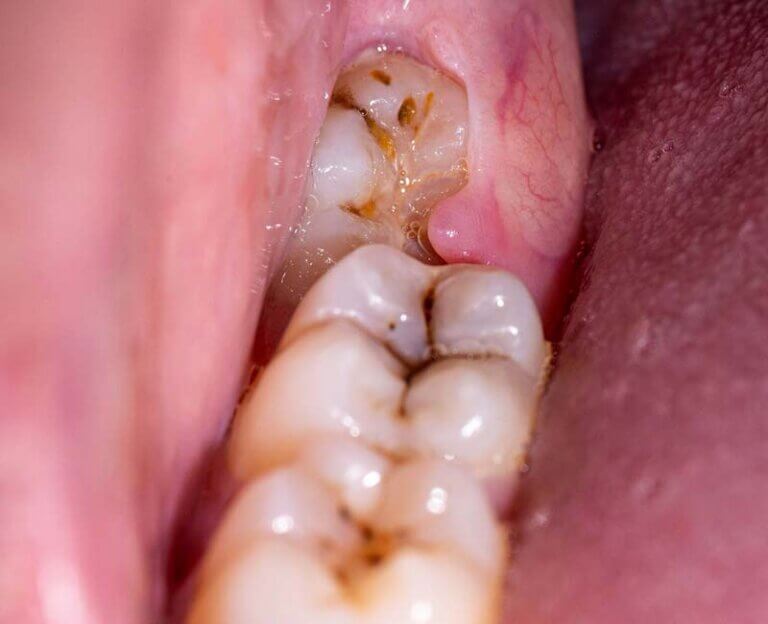
What Is an Impacted Wisdom Tooth?
If you’ve ever felt a dull ache in the back of your mouth or experienced discomfort while chewing, you might be dealing with an impacted wisdom tooth. These third molars, known as wisdom teeth, typically emerge in the late teens or early twenties. However, due to lack of space or misalignment, they may fail to erupt fully, leading to what’s termed an “impacted wisdom tooth.”
Imagine your mouth as a bustling city with limited real estate—sometimes, there simply isn’t enough room for wisdom teeth to comfortably settle in. When these molars can’t break through the gums properly, they become trapped or partially emerged, causing a range of issues that can affect oral health and overall well-being. Before you contact a Toronto dentist to examine Impacted Wisdom Tooth, there are some things you should know as a patient:
- Why Do I Have An Impacted Wisdom Tooth?
- Signs And Symptoms Of An Impacted Wisdom Tooth
- Types of Wisdom tooth Impactions
- Treatment Options For An Impacted Wisdom Tooth
- Managing Impacted Wisdom Tooth Until You Can See The Dentist
If you have questions about Impacted Wisdom Tooth or other dental problems, please contact us for more information.
Why Do I Have an Impacted Wisdom Tooth?
Understanding the underlying reasons behind impacted wisdom teeth can shed light on why this common dental issue occurs. Several factors contribute to the impaction of these molars, including:
- Insufficient Jaw Space: Often, the human jaw may not have adequate space to accommodate the emergence of wisdom teeth, leading to impaction. This lack of room can cause the teeth to become stuck or grow at an angle.
- Genetic Predisposition: Genetics play a significant role in determining the size and shape of the jaw, which can influence whether there’s enough space for wisdom teeth to erupt properly. Individuals with family histories of impacted wisdom teeth are more likely to experience the same issue.
- Misalignment: Sometimes, the positioning of existing teeth can obstruct the path of wisdom teeth as they attempt to emerge. This misalignment can impede the normal eruption process, causing the molars to become impacted.
- Late Eruption: Wisdom teeth typically emerge during the late teens or early twenties. However, in some cases, these molars may erupt later in life, when the jaw has already finished developing. This delayed eruption increases the likelihood of impaction due to reduced available space.
- Abnormal Tooth Development: Occasionally, wisdom teeth may develop abnormally, such as being tilted or angled incorrectly. These irregularities can contribute to impaction by preventing the teeth from erupting properly.
Understanding these factors can help individuals anticipate potential issues with their wisdom teeth and seek timely dental care to address impaction before it leads to complications. For more information about Impacted Wisdom Tooth, please contact us.
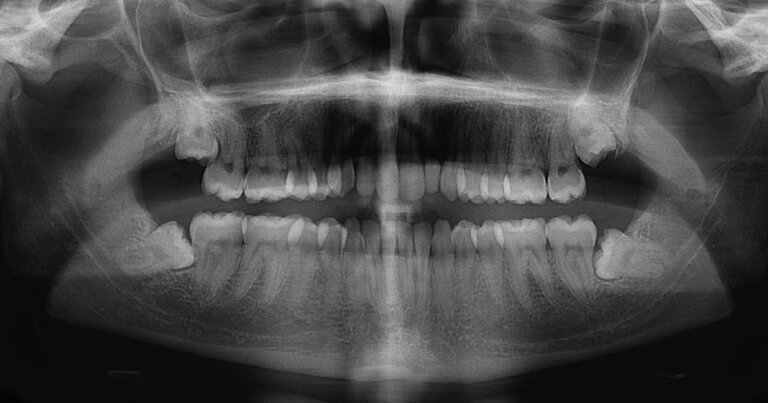
Signs and Symptoms of Impacted Wisdom Tooth
Identifying the signs and symptoms of an impacted wisdom tooth is crucial for prompt diagnosis and treatment. Keep an eye out for the following indicators:
- Pain or Discomfort: Persistent pain or discomfort in the back of the mouth, often radiating to the jaw or ear, can signal an impacted wisdom tooth. This discomfort may worsen when chewing or biting down.
- Gum Swelling Around Wisdom Tooth: Swelling and tenderness in the gums around the affected area are common symptoms of an impacted wisdom tooth. Inflammation may also lead to difficulty opening the mouth fully.
- Difficulty Opening Mouth: Impacted wisdom teeth can restrict jaw movement, making it challenging to open the mouth wide. This limitation may be accompanied by stiffness or a clicking sensation in the jaw joint.
- Redness and Irritation: The gums surrounding an impacted wisdom tooth may appear red, inflamed, and irritated. This inflammation can contribute to discomfort and may be accompanied by bleeding when brushing or flossing.
- Bad Breath: Accumulation of food debris and bacteria around an impacted wisdom tooth can result in persistent bad breath, also known as halitosis. This unpleasant odor may persist despite regular oral hygiene practices.
- Difficulty Eating: Impacted wisdom teeth can make chewing difficult, particularly if there’s pain or swelling in the affected area. Individuals may experience discomfort while eating certain foods, leading to dietary changes or avoidance of certain textures.
Recognizing these signs and symptoms can help individuals seek timely dental care and prevent further complications associated with impacted wisdom teeth. If you’re experiencing any of these indicators, it’s essential to consult with a dentist for proper evaluation and treatment. For more information about Impacted Wisdom Tooth, please contact us.
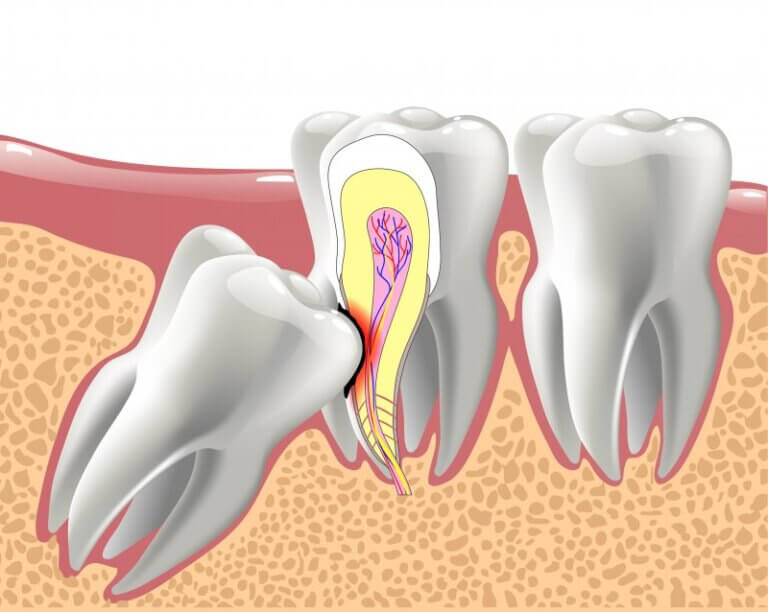
Types of Wisdom tooth Impactions
Wisdom teeth impactions can also be classified based on the level of impaction, referring to how deeply the tooth is embedded within the soft tissue or bone. These classifications include:
- Soft Tissue Impaction: The wisdom tooth is partially covered by gum tissue, making it challenging to clean and more prone to inflammation and infection.
- Partial Bony Impaction: Part of the wisdom tooth is covered by bone, with some portion of the tooth’s crown visible above the gumline. This type of impaction can lead to discomfort and difficulty in maintaining oral hygiene.
- Complete Bony Impaction: The wisdom tooth is entirely encased within the jawbone and does not erupt through the gumline. Complete bony impactions often require surgical intervention for removal due to their deep position.
Wisdom teeth impactions can also be classified based on the angle at which the tooth is impacted relative to the adjacent teeth and jawbone. These classifications include:
- Vertical Impaction: The wisdom tooth is angled vertically, attempting to erupt straight up like other teeth but may not fully emerge due to limited space or obstruction.
- Mesial Impaction: The tooth is angled forward toward the front of the mouth, often pressing against the adjacent second molar. This type of impaction can cause crowding and discomfort.
- Distal Impaction: The wisdom tooth is angled backward toward the rear of the mouth, facing away from the other teeth. This orientation can make it difficult to clean and may lead to complications such as infection or gum disease.
- Horizontal Impaction: The tooth is angled horizontally, parallel to the adjacent teeth, and may be completely blocked by bone or other teeth. Horizontal impactions often require surgical extraction due to their challenging position.
Understanding the level of impaction depth as well as the the angle of impaction helps dentists determine the best approach for managing impacted wisdom teeth and preventing complications. For more information about Impacted Wisdom Tooth, please contact us.
Treatment Options for Impacted Wisdom Tooth
Managing an impacted wisdom tooth involves a range of treatment options tailored to your specific situation. Explore these approaches with your dentist:
- Observation and Monitoring: Your dentist may recommend regular check-ups to monitor the impacted tooth’s development. If it’s not causing significant symptoms or affecting adjacent teeth, observation allows for careful tracking of any changes over time.
- Wisdom Tooth Extraction: For impacted wisdom teeth causing discomfort or posing a risk of complications, extraction is often the preferred option. During this procedure, the dentist or oral surgeon removes the impacted tooth under local or general anesthesia to alleviate symptoms and prevent further issues.
- Coronectomy: In cases where the wisdom tooth is closely situated to a nerve or vital structure, a partial removal procedure known as coronectomy may be considered. This approach involves removing the top portion of the tooth while leaving the root intact to avoid potential nerve damage.
- Antibiotics: If infection or inflammation is present, antibiotics may be prescribed to control bacterial growth and reduce swelling. It’s essential to complete the full course of antibiotics as directed by your dentist to ensure effective treatment.
Discuss these treatment options thoroughly with your dentist to determine the most appropriate approach for managing your impacted wisdom tooth and maintaining your oral health. Early intervention can alleviate discomfort and prevent potential complications down the road. For more information about Impacted Wisdom Tooth, please contact us.
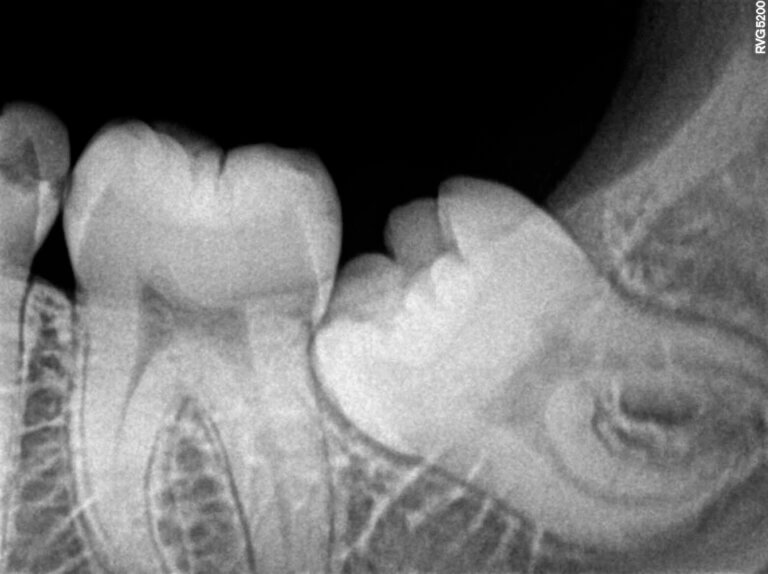
Managing Impacted Wisdom Tooth Until You Can See the Dentist
While awaiting dental care for an impacted wisdom tooth, you can take steps to alleviate discomfort and minimize complications. Try these strategies:
- Pain Relief: Over-the-counter pain relievers like ibuprofen or acetaminophen can help manage pain associated with an impacted wisdom tooth. These medications can temporarily ease discomfort until you’re able to see a dentist for further evaluation.
- Saltwater Rinse: Gently rinsing your mouth with warm saltwater several times a day can help reduce inflammation and alleviate soreness around the impacted tooth. Mix a teaspoon of salt in a glass of warm water and swish it around your mouth before spitting it out.
- Avoid Chewing on the Affected Side: To prevent exacerbating pain or discomfort, try to avoid chewing food on the side of your mouth where the impacted wisdom tooth is located. Opt for softer foods that require less chewing to minimize irritation.
- Maintain Good Oral Hygiene: Continue brushing and flossing your teeth regularly, paying extra attention to the area around the impacted tooth. Proper oral hygiene can help prevent bacterial buildup and reduce the risk of infection.
- Cold Compress: Applying a cold compress or ice pack to the outside of your cheek near the impacted tooth can help numb the area and reduce swelling. Wrap the ice pack in a cloth and apply it to the affected area for short intervals.
- Over-the-Counter Oral Anesthetics: Topical oral anesthetics, such as benzocaine-based gels, can provide temporary numbing relief for sore gums or irritated areas around the impacted wisdom tooth. Follow the product instructions carefully for safe use.
- Avoid Hard or Sticky Foods: Steer clear of hard or sticky foods that may aggravate the impacted tooth or cause discomfort. Opt for softer foods, soups, and smoothies that are easier to consume without putting excessive pressure on the affected area.
Implementing these temporary measures can help manage symptoms and improve your comfort level while waiting to see a dentist for proper evaluation and treatment of your impacted wisdom tooth. If your symptoms worsen or persist, don’t hesitate to seek professional dental care promptly. For more information about Impacted Wisdom Tooth, please contact us.
We also think you’ll like…

Wisdom Tooth Pain
How To Make Wisdom Tooth Pain Go Away What Is Wisdom Tooth Pain? Wisdom tooth pain is a common dental issue that many people experience
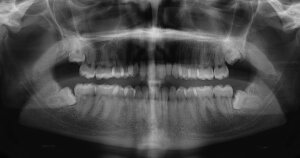
Wisdom Tooth Removal Consent Form
Wisdom Tooth Removal Consent Form There will be some pain, swelling and bleeding following a tooth extraction. This may require pain-relieving medication. Bleeding is usually
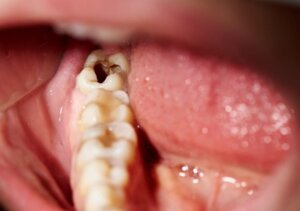
Tooth Decay In Wisdom Tooth
Tooth Decay In Wisdom Tooth What Is Tooth Decay In Wisdom Tooth? Wisdom teeth, also known as third molars, typically emerge during the late teenage
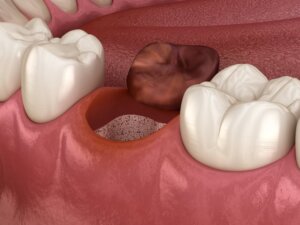
Dry Socket: Symptoms, Causes, Prevention & Treatment
Dry Socket: Symptoms, Causes, Prevention & Treatment What Is A Dry Socket? Dry socket is also called alveolar osteitis. After having regular tooth removal or

Dental Pain Medication
Dental Pain Medication What Is Dental Pain Medication? Dental pain can range from a mild discomfort to intense throbbing, making even the simplest tasks unbearable.
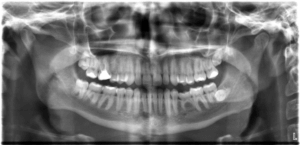
Panoramic X-Ray
Panoramic X-Ray What Is A Panoramic X-Ray Scan? A Panoramic X-Ray scan, also known as a Panoramic radiograph or orthopantomogram (OPG), is a specialized 2D

